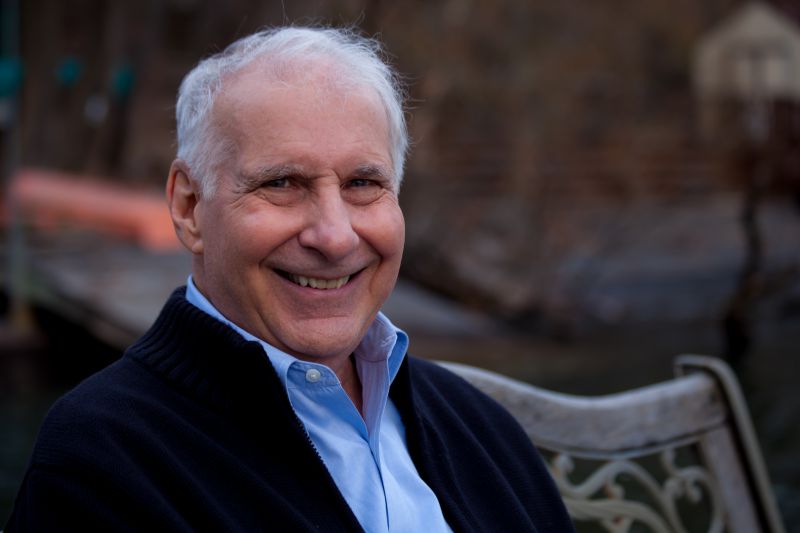A Psychiatric Drug Story of Tragedy and Triumph
- July 7, 2010
- / Dr. Peter Breggin
- / blogs,huffingtonpost

By Dr. Peter Breggin
07/07/2010
Today I am reproducing for my readers a letter that we recently received from a woman I will call “Janice.” My wife Ginger reads and responds to most of the many communications that come to us each day through email and the networking sites she has joined. Several times a week we will get a communication that tells us that our reform work “saved my life.” I have never talked about this before because it seems self-serving, but people need to know how lifesaving it can be when health professionals dare to be honest about the hazards of psychiatric drugs and the value of empathic therapeutic approaches.
This week we received several more such letters but one stood out with its dramatic and heartfelt detail. Janice vividly portrays how she suffered not only from the disabling effects of the drugs, but also from the stigma of psychiatric diagnosis that discouraged her and made her well meaning family insist that she remain on drugs. As it seems to be in Janice’s case, the vast majority of the adults labeled “bipolar” that I see in my practice are suffering from antidepressant-induced mania in addition to whatever original life trauma led them to be diagnosed in the first place. I document several similar stories and provide the background science in Medication Madness: The Role of Psychiatric Drugs in Cases of Violence, Suicide and Crime.
Notice how much courage and motivation Janice received from a single doctor verifying for her that her problems were due to psychological trauma and not to an alleged psychiatric disease. This should lend inspiration to health care practitioners who choose to speak honestly to their patients about the origins of their emotional problems in the story of their lives.
Janice went off psychiatric drugs cold turkey and suffered greatly as a result. I never recommend this. But unfortunately too few health care providers have any idea about the merits of withdrawing from psychiatric drugs and how to help patients go about tapering off psychiatric drugs in way to minimize the withdrawal effects.
Janice’s story moves from tragedy to triumph. I offer it to you for the inspiration that it provides and I wish to thank Janice for the trust she has shown in sharing her story with us, and in allowing us to publish it anonymously.
Janice’s Story
Dear Ginger:
Your husband’s work saved my life.
In 1992 I was told I was bipolar by a psychiatrist who spent about 20 minutes with me. We did not go into my abusive childhood or the fact that I had recently lost my sister in a car accident. He put me on Prozac and I chewed a hole in my lower lip, felt numb and went off of the drug within a few weeks. When I returned he was angry at me for not sticking with the medication and told me he was going to put me on lithium. I ran away and stayed off medication for a few years.
I married and along the way had marriage trouble. My husband believed I was an unmedicated bipolar and threatened to leave me if I did not get back on medication. I then took Paxil [paroxetine]. I have to admit the Paxil made my moods and depression even worse. I ended up divorced and went on and off Paxil for about a year. Then I met someone else.
I lost a second sister in a car accident, she was eight months pregnant and she and the baby were killed. I slipped into a deep depression and found a new psychiatrist; he put me on depekote and wellbutrin. I feel these medications actually made me act bipolar but in my heart I felt I was not bipolar and I would question it and say “Maybe I have had just had a bad life and need therapy.” My family would reply, “If you love us you will stay on your medications.”
I hated my life. I fought suicidal thoughts constantly, I could barely get up out of bed. I hated interacting with the world. After three years I was on Risperdal (risperidone), for anger issues. I had a very bad reaction to it and ended up in the emergency room thinking at the age of 33 that I was having a stroke.
My then fiance left me and said he couldn’t handle living with me anymore. I didn’t blame him. I felt I would never be able to be happy or maintain a normal relationship ever. So I threw all my medications away, locked myself up in my apartment and waited to die.
I went through withdrawls for weeks, it was horrible. But eventually something I hadn’t expected happened, I began to feel different for the first time in 10 years. I began to feel alive.
I confessed to a friend I had not been taking medication and he said I looked great but begged me to go get back on meds. I had no insurance at that point so I went to a clinic where they give medication to people on an emergency basis.
At the clinic, I was treated so well. I was interviewed by two separate doctors for a long time. After a while one of the doctors met with me in his office and he asked, “How much of this do you think is bipolar and how much do you think is your life?” I cried and said, “I don’t know. I keep telling everyone I think a lot of this is my life not that I am bipolar.” He said, “I don’t know how to tell you this, but I think you were misdiagnosed.”
It was a dream come true!
He did confirm I had issues to deal with but he felt therapy was what I needed. Just days later I went to the bookstore where I found Dr. Breggin’s book Toxic Psychiatry staring at me on the l sales rack! I bought it and as I read it I felt so foolish. Years of my life were wasted and gone because I never openly questioned these doctors.
I began therapy and was amazed how quickly I was able to solve issues while off medication. On medication each session had been the same thing and I never moved forward. Now I had to learn how to live my life all over again, this time as a person without bipolar. I actually had to learn how to be happy. It was so unreal to me.
That was all back in 2004. I still go to therapy. Since then I went to grad school, married an amazing man, and now I am expecting a baby this August. My mistrust of doctors has lead us to a homebirth. We have a wonderful midwife and my pregnancy is low risk. This is something I gave up on, having a child, because I had to be on all those medications and never felt mentally stable enough to be a good mother, until now.
I am working on a memoir about being misdiagnosed, hoping it will help free others. Everyone I know on medications had deeper issues. Unfortunately few of my friends will listen to me. Even though they see what happened to me, they still believe depression can be solved only with pills. They would rather take medications than dig deep and deal with the pain of the past.
Thanks for reading my story; this was actually the short version! Thanks for the work you and your husband do.
Originally published on The Huffington Post.
 Psychiatric Reform Accomplishments
Psychiatric Reform Accomplishments